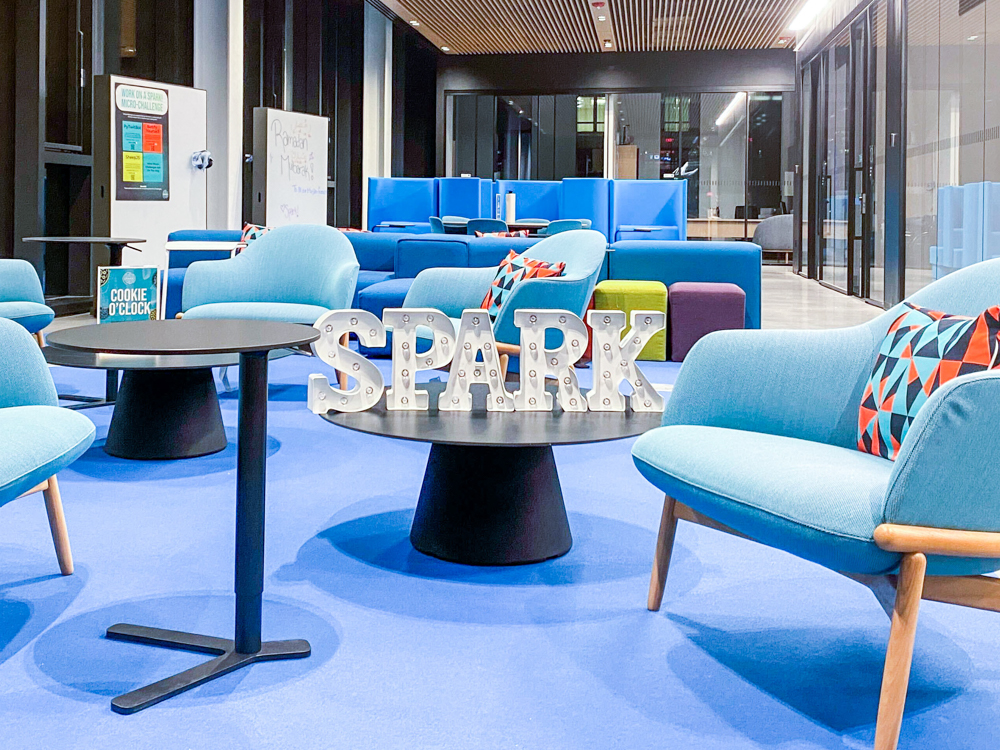Abby Gualda, a senior at Boston University in the College of Arts and Sciences, said she’s used to walking into a room that’s “full of men.”
“If a woman’s going to walk into a room full of men and sees no one that looks like her, [she’s] like ‘oh, maybe I shouldn’t be here,’” Gualda said. “It’s super hard to invite more people into the arena when they haven’t had any preparation for what they are walking into.”
Gualda is a computer science major.

While the percentage of women in the United States that have received undergraduate degrees in computer science has grown exponentially since 2008, as recorded by the National Center for Science and Engineering Statistics, women still only make up 20 percent of those awarded.
Looking into gender imbalance, specifically in the sector of computer science, the male-oriented image and culture have created a deficiency of women receiving degrees in this field, according to the National Library of Medicine.
CAS freshman Kate Seo, a computer science major, said she notices a disparity in the dynamics between women and men in the classroom setting, for example in answering questions.
“If a professor is asking a question, it’s usually always going to be a guy that raises his hand and answers the question, whereas, with girls, I feel like we’re more scared to get it wrong or look stupid,” Seo said. “We just end up participating less and then that creates more of a male-dominated feeling in the classroom.”
BU Spark! Operations Director Lydia Holck, said Spark! understands the gender imbalance women in computer science face.
“We are hyper-aware of the fact that there’s not enough women in tech,” Holck said.
Spark! is an innovation and experiential learning lab for computing, data science and engineering projects. Gualda, a member of Spark!, said the organization allows for outside organizations to partner with BU students.
Gualda feels that Spark! is helping with the gender imbalance within computer science.
“Spark! has made a place on campus for me where I do see people that look like me,” Gualda said. “It is so incredibly diverse.”
Holck said Spark! works to change the gender imbalance through its ambassador program, hiring managers and community groups on campus.
“We do center women and people of color at all of our programming, and we’re targeting it for them,” said Isabel Torres, the community and outreach manager for Spark!.
A study published by the Proceedings of the National Academy of Sciences of the United States of America found that children internalize gender disproportion for future jobs as young as age six.
The publication found that girls who endorsed the stereotype that “girls are less interested in computer science than boys” showed the lowest percentage of interest in pursuing that field.
Mia Parker, a junior in the College of Communication, went to BU with her eyes set on public relations. However, the quantitative reasoning in the HUB requirements is the only reason she decided to pursue her computer science minor.
“I took CS111, which is the intro course for computer science as a HUB, because I needed a quantitative reasoning, and I ended up really liking it,” Parker said.
Regardless of this, both Gualda and Seo nodded towards the increase in gender equality in recent years.
Gualda, who is in her last year at BU, felt the pandemic assisted in neutralizing the balance. This was because it was “less daunting,” due to the ability to turn off your camera and ask more questions.
Now that the classes have returned back in person, Parker said that encouragement amongst other women in the class has created a bond where they stick together.
“I’m more likely to ask for help from a girl because I feel like they understand me in this space more than a guy,” Parker said.
Gualda said she could “write a whole TED Talk” on this subject.
“I think that there has to be a pipeline for women to be able to access any field in STEM,” Gualda said. “Even if we are told when we are little that ‘we are needed,’ … there’s no one helping or actually telling us how we can get there.”
Mara Mellits contributed to the reporting of this article.


















































































































